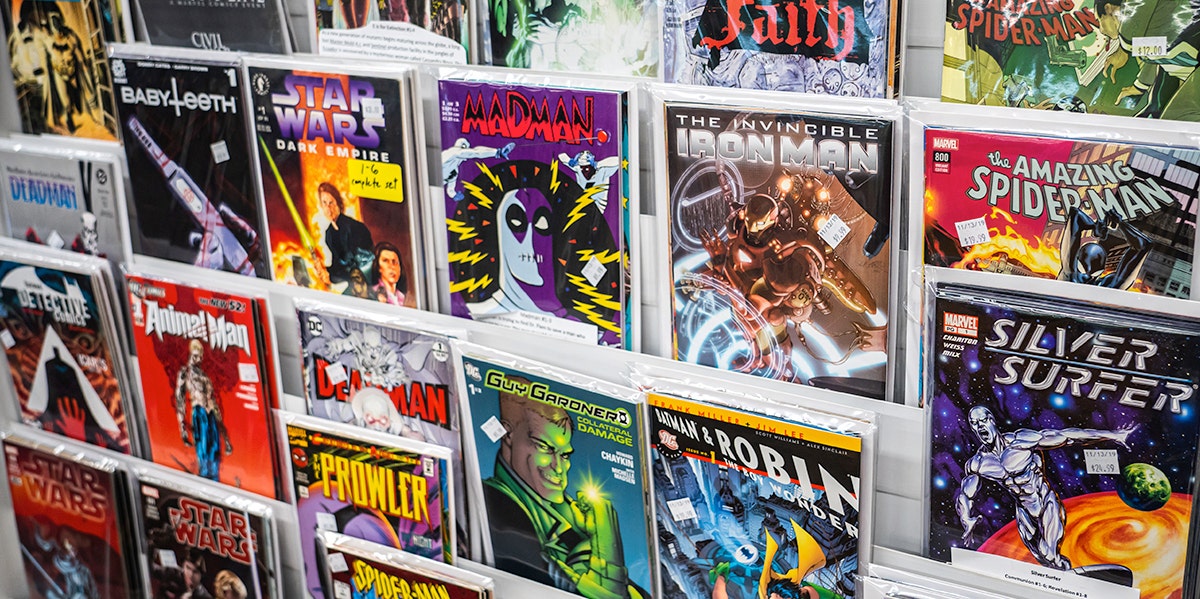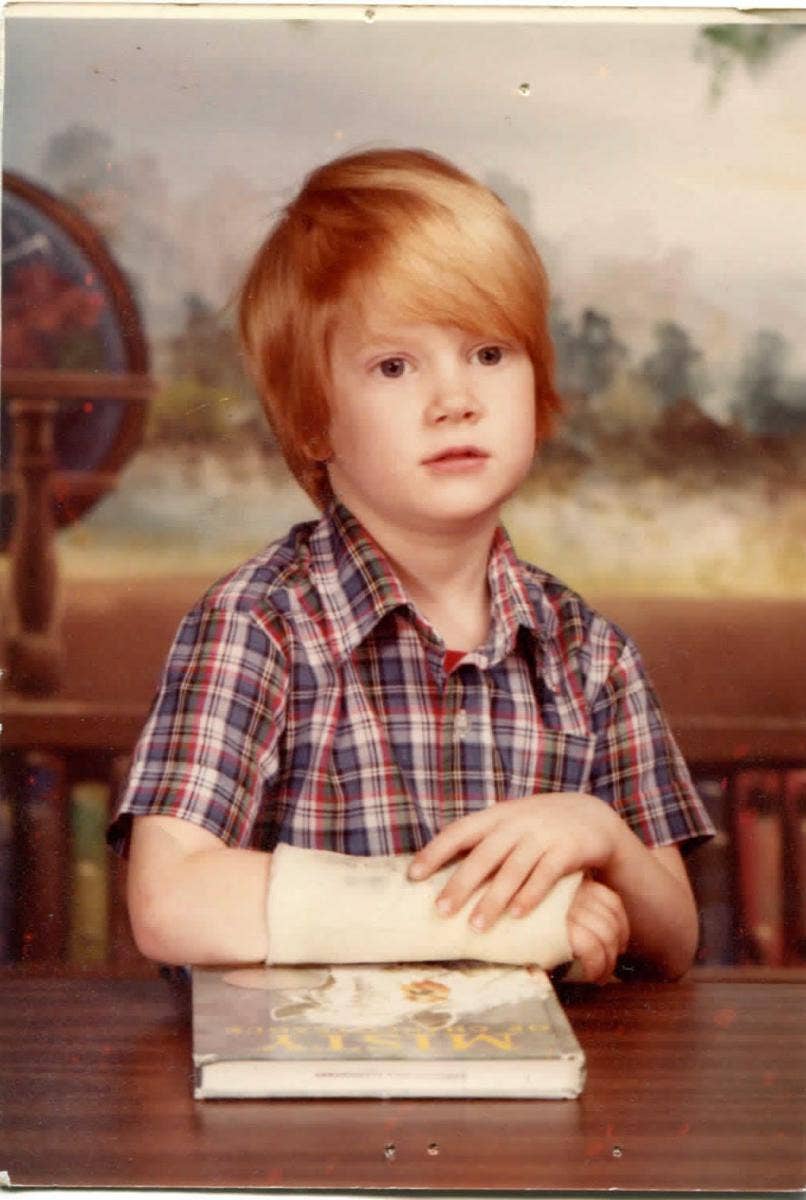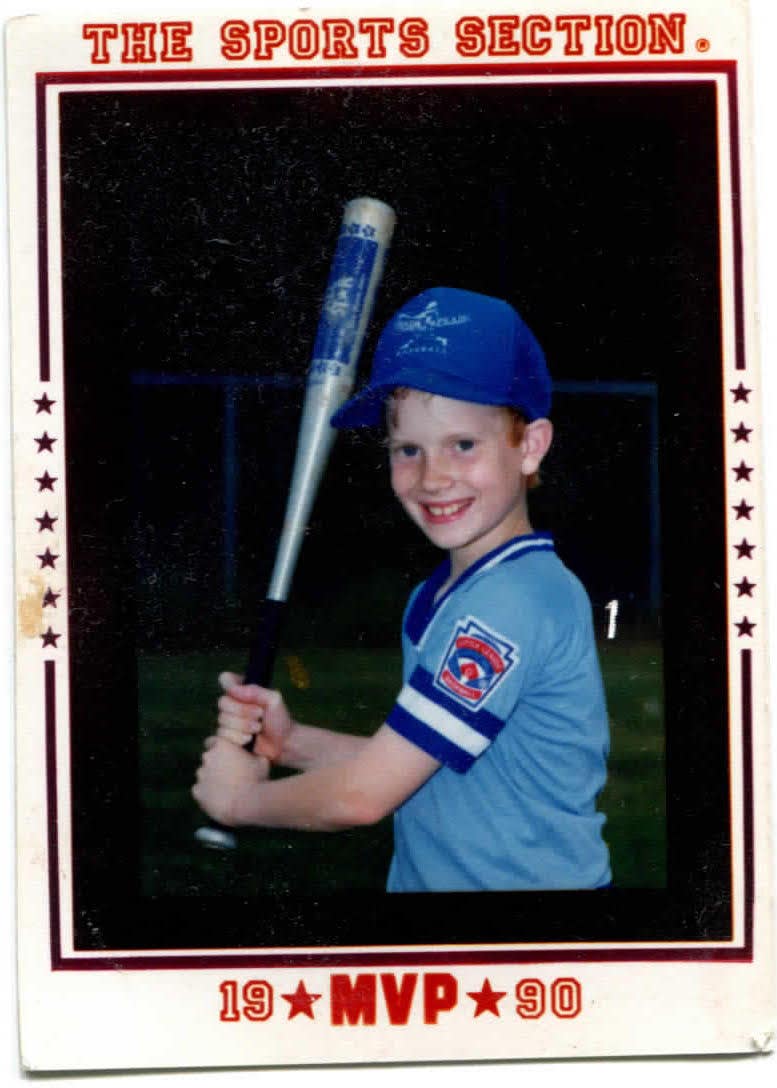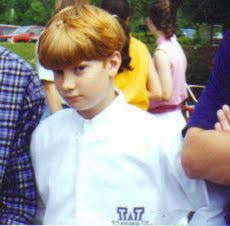Comic Books Saved My Life
As a kid, I regularly wore a Superman costume under my clothes.
 Eudaimonic Traveler / Shutterstock
Eudaimonic Traveler / Shutterstock As you know, the granddaddy of the contemporary comic book industry, Stan Lee, died in 2018. I'm a little more interested in indulging in what he meant to me because superhero worship pre-dates written language.
"The Iliad," the "Epic Of Gilgamesh," the "Mahabharta," and many more from every culture serve as templates for our modern-day guys and gals in capes. Frankly, the boy king pulling Excaliber out of a stone resonates so hard with virtually all kids that I'm not sure how there hasn't been a version of the Arthurian legend released starring every gender, religious and ethnic combination possible.
Mythology has a much broader cultural relevance than Marvel Comics; however, the theme of 'wish fulfillment' is what's always struck a chord with me.
As a kid, I regularly wore a Superman costume under my clothes. I'm told I also wore a pail as a helmet on my Big Wheels, so maybe I was just an odd duck. But my mom dutifully dyed thermal underwear to a shade of royal blue and the Man Of Steel's costume was part of my outfit for an unreasonably long part of my childhood.
I don't recall why I wore it other than Superman being awesome, but let's say that because I was sick a lot as a kid, it made me feel strong. I have a foggy recollection of insisting on wearing it to an emergency room visit, so maybe there's a touch of validity to my self-psychoanalysis.

I enjoyed the Christopher Reeve Superman movies, Bill Bixby Incredible Hulk TV show and friendly neighborhood Spider-Man cartoon as much as any decent person with a big heart would, but I didn't remotely get into reading the “funny papers” until I was pre-pubescent.
I was a small kid that showed up very, very late to the puberty party. Different traditions have different thresholds for becoming men, but if the transition from boy to whatever comes next is the ability to breed, I was likely 16 before I emitted, nocturnally or otherwise. By contrast, I was on a football team with guys who were having full-blown intercourse when we were 12 and 13.
While I would have loved to have been a superstar athlete, my nearly adolescent mind was especially not ready for anything beyond a child's body. And holy moly was I lonely.
I'm close with my sisters, but the 8- and 12-year gaps between us may as well have been a million and a billion, respectively when I was a kid. Pitch in thoughtful but dual-income parents and a spate of kids moving out of my neighborhood at the exact same time, and I got a lot of "me" time. I could be genetically pre-disposed to lone wolf-edness but nurture played his part, too.
On a visit to my grandparents, I “discovered” a store that sold baseball cards and comics. Baseball cards, while likely dorkier now, were somewhat more socially mainstream in the early nineties. However, Tim Burton's Batman was still pretty fresh in people's minds and the tide was turning.
The big two comic companies, Marvel and DC, were perhaps a victim of their own success as several “creator-owned” comic imprints spun off from mother ships.
Even though Spawn was the belle of the ball from this new class of dark, violent, stylized “graphic novels,” I fell in love with a character called Prime. And his conceit could not have been anymore of a wish-fulfillment fastball down the middle for me, even if the character was named Tommy and grew up in the Atlanta suburbs. He's a dorky 13-year-old who transforms into Superman-esque, hulking paragon.
If I recall correctly, his power was largely fueled by his self-confidence and upon exhaustion, the superhero's frame would disintegrate into a puddle of protoplasmic goo, leaving only the scrawny body of an adolescent introvert. Sure, the similarly-premised Shazam predates Prime by decades, but still, please metaphor me another metaphor, Dr. Metaphor.
I could probably trace some part of why I like/liked any character to what of myself I saw in them. I was afraid of the dark, so I like Batman who uses the dark as a bludgeon against evil. Superman is a lonely soul, another orphan who is sworn to protect and love his inferiors even if he can never truly be one of them. The Incredible Hulk is impotent nerd rage personified. It's been said that everything a writer writes is essentially about herself, and I'm sure that everything a reader reads is also about herself.

Stan Lee (and before him, Joe Shuster, Bob Kane, and Jack Kirby, amongst myriad others) knew intrinsically that people, particularly young people, need or seek wish fulfillment. We need idealized versions of ourselves in times of struggle to give us hope, and in good times to keep us from abusing our power.
Fans of almost anything tend to be territorial. And if the internet has proven anything, it's that the only proper interpretation of a superhero is the one we resonate with. However, the absolute beauty of so many of Stan Lee's characters is they could mean so many things to so many people without infringing on what they mean to someone else.
Following his death, Stan Lee was remembered very specifically for his creation of the X-Men, Black Panther, and Spider-Man, as well as scores and scores and scores of other household names.
The X-Men and their associated antagonists have been used as stand-ins for concepts like adolescent ennui to LGBTQ issues to the civil rights movement. However you may hook in, they're principally a group of outcasts whose sole reason to exist is to protect the right of other outcasts to exist.
Could you burrow more into the psyche of a person who feels marginalized? Does it get more punk rock than the downtrodden defending the downtrodden against bigots? Who hasn't lied in bed and wished for the power to undo an injustice?
I didn't appreciate the gravity of Black Panther until I was probably an adult. I likely thought of him as a version of Batman who didn't shy away from the color purple and was an orphaned king instead of an orphaned rich guy. However, as an adult, the character and his history are striking to me (essayist Te-Nehesi Coates is currently doing an acclaimed run with the character).
It's hard to exactly pin these things down but the character likely pre-dates the Black Panther Party. It's impossible to think of anything more in the realm of aspirational than a hero in the 1970s (or any American era) who not only can go toe-to-toe with anyone in the world but is the benevolent regent of a virtual African utopia. Could there be more of a poetic vision?
Despite checking a lot of boxes (lonely, science-y, scrawny), I was never a huge fan of Spider-Man but I appreciate the central theme of the character. “With great power comes great responsibility” is so intrinsic to the mindset of us hopeful tech-heads that Google's original slogan was “don't be evil.”
Maybe they've strayed from the path but the idea that the world's most powerful gaggle of dorks began their venture with the idea that “if become powerful, we'll do it right” is almost the logline from the Tom Hanks wish-fulfillment magnum opus Big. Maybe some web-dwelling culture warrior would disagree, but there's no particular honor in impotence.

Like all people who are amply cognizant of their weakness, I've spent most of my life wishing to be tall, handsome, rich, powerful. It'd be insane to credit comics and their archetypal brethren for more than a sliver of my moral compass one way or the other, but maybe I'd be more likely to conflate wish fulfillment with revenge fantasy without them.
Stan Lee and the giants whose shoulders he stood upon have imparted me (and other members of the nerd herd) with a romantic vision of the best version of myself. And maybe they snuck in a secret lesson about the judicious use of power coupled with the strength of humility.
A cynic (or a Bill Maher) may point to this kind of vicarious hope as a substitute for religious sentiment and it's a legitimate criticism. However, as we recognize more and more that there is a measurable benefit to prayer (to the person praying, at least), we may come to appreciate that the hope and sense of empowerment engendered by fictional heroes is truly valuable.
At least Superman isn't gonna be caught with a live mic describing how he likes to humiliate the elderly.
Tom Miller is a writer and performer based in New York. He's been a mechanical engineer and a banker. He's been the general manager and coordinating video producer at YourTango for 12 years. He's probably listening to Bryan Adams' "(Everything I Do) I Do It For You" as we speak.

